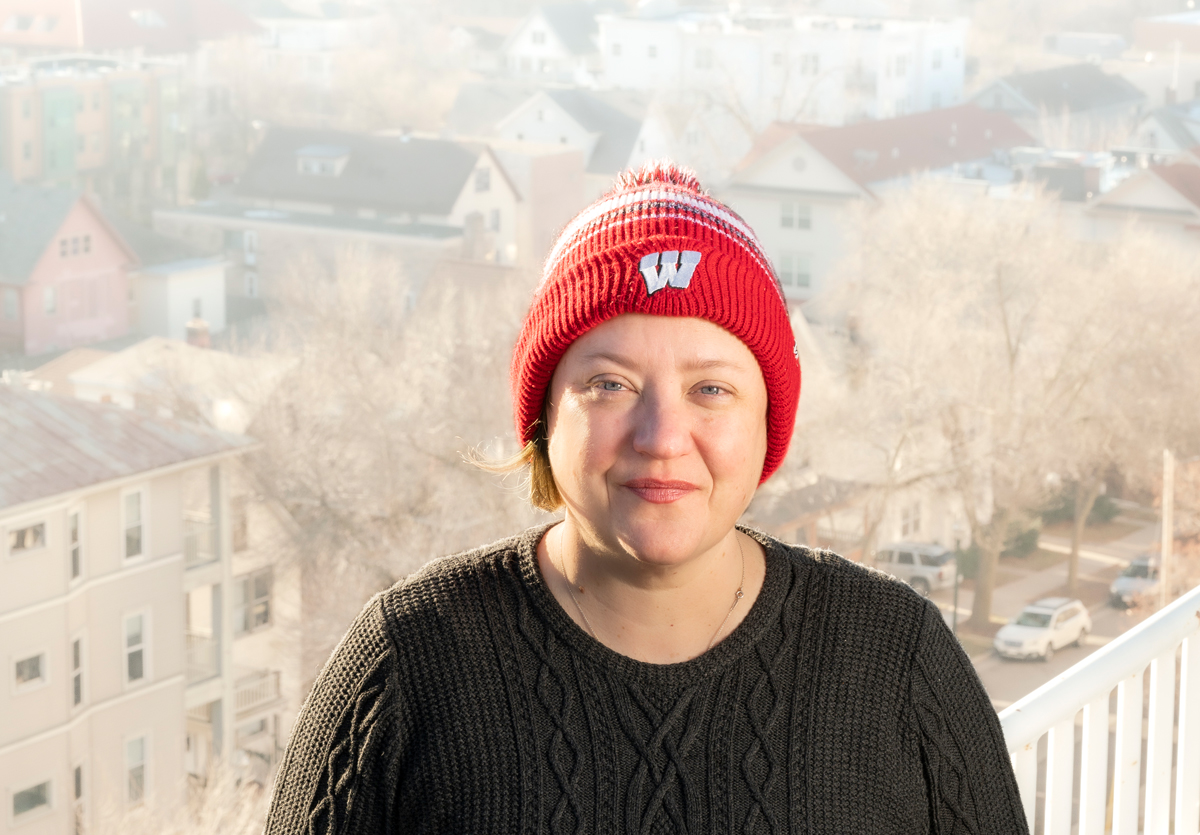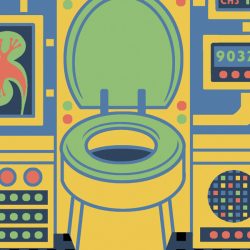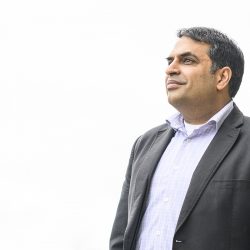A Viral Sensation
Professor Malia Jones becomes the nation’s go-to COVID-19 expert with Dear Pandemic.
UW epidemiologist Malia Jones was in Iceland when COVID-19 struck. On her return, she anticipated a lockdown and time to catch up on work. Maybe she’d do some knitting.
The country had other plans for her. Anxious family and friends reached out for clarity in the face of an unknown disease, and her emailed response went, well, viral: Jones became a pandemic expert overnight, a sought-out source to calm the nerves of a nation unprepared. As questions crowded her inbox, Jones turned to colleagues in public health — a team self-dubbed “those nerdy girls.” Their online platform, dearpandemic.org, is a hub of knowledge ranging from how to navigate pandemic life to the science behind the virus.
How did that initial email go from personal correspondence to sensation?
I think what happened was there was just no real information at that point. Every reporter was trying to become a science reporter overnight, and no one even knew who to call to ask questions about a pandemic like this. That email I wrote just got sucked into a vortex of lack of information, lack of content. Then, of course, the more you talk to the media, the more the media calls you. I was really overwhelmed, so I reached out to my long-time collaborator, Alison Buttenheim [from the University of Pennsylvania], and she had the idea to launch a Facebook page where we could collaborate. She was also getting a lot of inquiries and she wanted to collaborate and not duplicate work and have a central place where we were posting our updates, and we called it Dear Pandemic.
Where did the name Dear Pandemic come from?
It’s a play on Dear Abby. We were getting a lot of questions and they were kind of Dear Abby–like questions. They’re very personal and specific. A lot of them are super practical like, “Okay, that’s great. I’m so glad we’ve sequenced the genome, but do I have to wipe off my groceries?” Of course, some of the questions we get are scientific questions. We talk about how false positives occur, and we share transcription processes and try to translate and explain all the science, too.
How has the platform changed?
It’s really become an entity unto itself. I think that a lot of the collaborators are hoping that it becomes a really durable enterprise that has a scientific arm and a public-health intervention arm. We really go out of our way to be nonpartisan, and I think that’s an important step to try to bridge what has become — totally unnecessarily — an ideological debate, and bring it back to a scientific conversation.
Have you learned anything new through this project?
Many people struggle with generalizing information, and also taking general information and individualizing it. I already knew people, at least in this country, don’t get a lot of training in critical thinking or vetting information or vetting their sources, but I didn’t realize that that was the gap in the way we process information, that inability to generalize. People don’t seem able to just take the general advice, [such as] “Wear a mask,” and apply it to whatever situation they have.
You’ve written about bridging the gap between individual experience and population problems. How is Dear Pandemic doing that?
One of the real challenges of dealing with a pandemic is that most of us are not trained at all to think of it at a population level. It’s a very special kind of a skill to be able to think of the population level and think about how my actions are both affected by and also feed into what’s happening in my whole community, and that’s what we need to do. A pandemic is a population problem. It’s not an individual problem at all, and yet we have to get individual people to make decisions like wearing a mask and getting a vaccine in order to control it.
How has this work influenced your own research?
Going forward, my scientific interest is in understanding how people get information about infectious disease, how they evaluate it, how we evaluate risks. It’s cognitively taxing to always be weighing the risks and trying to sort all this stuff out; our brains give up.
Published in the Spring 2021 issue




Comments
No comments posted yet.